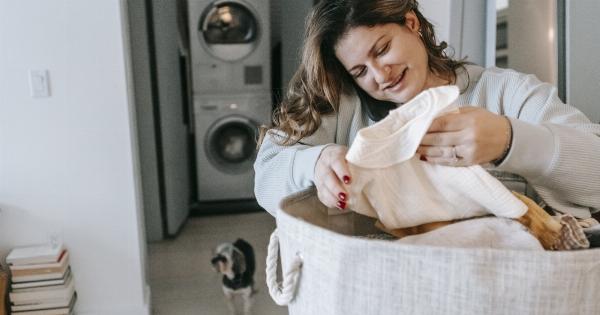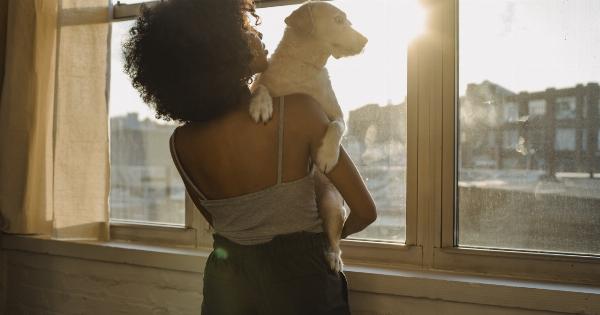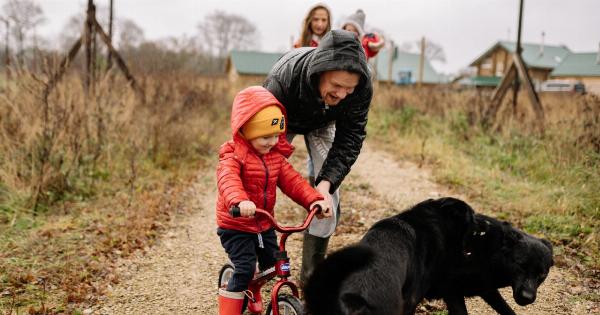Discovering that your beloved canine companion has relieved themselves on your bed can be frustrating and confusing.
Dogs urinating in their owner’s bed can stem from various reasons, and it is essential to understand these underlying factors to address the issue effectively.
1. Marking Territory
One common reason behind a dog peeing on their owner’s bed is marking territory.
By urinating in this highly scented area, often infused with their owner’s scent, dogs aim to establish a sense of ownership over the space and mark it as their own. This behavior is more common in intact males and females in heat, as they have a stronger instinct to mark their territory.
2. Separation Anxiety
Separation anxiety can also be a factor in dogs peeing in beds. When dogs feel anxious or stressed when left alone, they may engage in destructive behaviors, including urinating in inappropriate places such as the owner’s bed.
This behavior provides them with a source of comfort and reassurance by surrounding themselves with their owner’s scent.
3. Submissive or Excitement Urination
Some dogs may urinate on the bed as a submissive gesture or due to excitement. This behavior is more common in puppies or dogs with submissive personalities.
They may lose control of their bladder when experiencing excitement or when approached by someone they perceive as dominant.
4. Medical Issues
In some cases, a dog peeing in their owner’s bed could be a sign of an underlying medical issue.
Dogs suffering from urinary tract infections, bladder stones, diabetes, or other urinary problems may experience frequent urination or accidents in unusual places. If you suspect a medical issue, it is crucial to consult with a veterinarian to rule out any potential health problems.
5. Lack of Proper House Training
Dogs that have not been adequately house trained may not understand that urinating on the bed is unacceptable behavior.
They may not have learned the appropriate places to relieve themselves or have inconsistent or insufficient training, leading to accidents on the bed.
6. Changes in Routine or Environment
Change can be stressful for dogs, and they may react by engaging in inappropriate urination, including on the owner’s bed.
Changes in routine, such as a new work schedule or a move to a new home, can disrupt a dog’s sense of security and trigger anxiety-related behaviors.
7. Scent Attraction
Another possible reason for dogs peeing on beds is scent attraction.
If a previous pet or animal has soiled the bed, even if the scent is no longer detectable to humans, dogs possess a highly sensitive sense of smell and may still be drawn to that area for urination.
8. Behavioral Issues
In some instances, dogs may exhibit inappropriate urination behavior due to underlying behavioral issues.
Dogs with dominance or aggression issues may urinate on the owner’s bed as a way to assert their dominance or exhibit their displeasure towards the owner or other pets in the household.
9. Lack of Proper Bathroom Access
If a dog is unable to access their usual designated bathroom area, they may resort to urinating in inappropriate places such as the owner’s bed.
This can happen if their normal bathroom area is gated off, inaccessible due to household renovations, or if the dog is confined to a specific area for prolonged periods.
10. Cognitive Dysfunction
In older dogs, cognitive dysfunction can lead to confusion and disorientation, contributing to inappropriate urination habits.
Dogs with cognitive dysfunction may forget their house training or lose control of their bladder, leading to accidents on the bed.
How to Prevent and Address the Behavior
Addressing the issue of a dog peeing in your bed requires patience, consistency, and understanding. Here are some steps you can take to prevent and tackle this behavior:.
1. Rule Out Medical Issues
Before assuming the behavior is due to other factors, it is crucial to rule out any potential underlying medical problems by consulting with a veterinarian.
A thorough examination and appropriate tests can help identify or rule out any medical conditions that may contribute to the behavior.
2. Reinforce Positive House Training
Ensure your dog receives proper house training from a young age or revisit their training if necessary.
Use positive reinforcement techniques such as treats and praise to reward appropriate bathroom behavior, and avoid punishment-based methods, as they can create anxiety and worsen the issue.
3. Provide Sufficient Bathroom Breaks
Make sure your dog has regular and frequent access to their designated bathroom area. Dogs typically need to relieve themselves shortly after waking up, after meals, and before bedtime.
Take them outside on a consistent schedule and reward them for appropriate elimination.
4. Implement Crate Training
Crate training can be beneficial for dogs that struggle with house training or display destructive behaviors.
A properly introduced and appropriately sized crate can serve as a comfortable den-like space that discourages accidents on the bed and provides a sense of security for your dog.
5. Minimize Stress and Anxiety
If your dog exhibits signs of anxiety, especially when left alone, take steps to minimize their stress.
Use calming techniques such as providing interactive toys, soothing background music, or a safe, designated area where they can relax while you are away.
6. Clean and Eliminate Odors
To prevent your dog from returning to the same spot, thoroughly clean the affected area using enzymatic cleaners designed to eliminate the urine scent.
Avoid using ammonia-based cleaners, as they can mimic the smell of urine and potentially reinforce the behavior.
7. Limit Access to the Bedroom
If the issue persists, consider restricting your dog’s access to the bedroom temporarily. This can help break the habit and prevent accidents on the bed while you work on addressing the behavior.
Gradually reintroduce access as the problem resolves.
8. Consult with a Professional
If the problem persists or if you are unsure how to address the behavior on your own, consult with a professional dog trainer or a certified animal behaviorist.
They can assess the situation, provide tailored guidance, and help you develop a behavior modification plan specific to your dog’s needs.
Conclusion
Discovering that your dog has peed on your bed can be frustrating, but it is essential to approach the issue with understanding and patience.
By identifying the underlying cause and implementing appropriate training techniques, you can successfully prevent and address this behavior. Remember to consult with a veterinarian or professional if you need additional guidance.


























